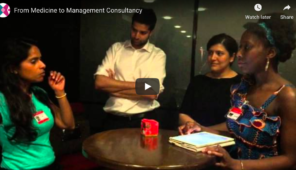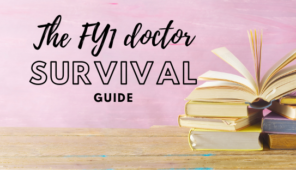From Medicine to Healthcare Technology Entrepreneur Event
We were fortunate to have Dr Louisa Draper and Amit Khutti from DrEd join us for our first event of 2016; our healthcare technology entrepreneur event.
We were fortunate to have Dr Louisa Draper and Amit Khutti from DrEd join us as speakers for our first networking event of 2016; our healthcare technology entrepreneur event. Special thank you to them and of course thank you to all of our attendees who came along and helped make the evening a great success.

There was the usual mix of talks, Q&A and structured networking; to make sure that all of our attendees were engaging and networking with each other.
ABOUT DR ED
DrEd was founded in 2011 by Amit and today, patients can come come online for medication, advice and testing. They currently have a team of 12 doctors, who can work in their offices (they have new offices in Islington) or can work from home.
The great draw of online healthcare is the convenience of it all – some of their biggest sellers are the contraceptive pill and STI testing.
LOUISA’S STORY

Louisa as a doctor worked in orthopaedics and plastic surgery. She found that she really started struggling with the night shifts and ended up having to take a break from medicine due to ill health.
When Amit suggested that she try working for DrEd she agreed and she is still there, as she ended up really loving it! She had always been interested in how to improve medical care and she is now in an environment where she can bring about positive change to patients more quickly and easily. As it’s fast-moving, you can really feel like you are making a difference.
For her, leaving medicine was an emotional process, filled with guilt and fear. It was made especially hard by other people making her feel bad about it. Common comments were along the lines of :
You can’t quit medicine
The most important thing was to learn to stop listening to other peoples’ opinions on the subject. She learned to start talking about her new job at DrEd in positive terms, rather than negative terms.
A turning point was bumping into two girls at a festival that she knew from medical school, who had left the profession to pursue other paths. Finally, other doctors following other career paths that actually made them happier!
LOUISA MAKES A VALID POINT
She didn’t feel valuable outside of the NHS. Actually, your medical experience gives you insight into patient thought and that can be brought to the commercial table. You also have a whole host of non-medical skills as well that you will have picked up over the years.
Louisa picked up on the point that often doctors do not know how to sell themselves, in general and in an interview context.
Learn to communicate in an engaging way and don’t be afraid of selling yourself!
AMIT’S STORY
Amit used to work for McKinsey and do consulting work within Chelsea and Westminster Trust before making the leap and setting up his own business. He had some interesting viewpoints on working for DrEd, as opposed to the NHS; and on doctor’s transitioning (not least because himself and Louisa are now married!)
He said that the initial step is hardest to make for a doctor. However, once doctors start working in a different environment, they start to adjust to it. The fact that they can make things happen quickly (once things are decided, they can be implemented the same day) triggers an interest in doctors.
For a doctor, it’s easy to focus on the skills you don’t have rather than all the ones you do have.
He pointed out some of the many skills a doctor has. They tend to be:
- very bright
- a structured thinker
- able to prioritise
- able to multi-task
- used to making evidence based decisions
Q&A SESSION

Some of our questions asked during the evening:
WHAT ADVICE DO YOU HAVE FOR DOCTORS IN TRANSITION?
Louisa sugggested taking it slow – find a job to work part time and devote some of your time to following your dreams.
Also:
Learning not to give a s**t about what others say
WHAT DIFFICULTIES HAVE YOU ENCOUNTERED WORKING IN AN OFFICE?
Firstly, getting used to working on a computer all the time!
Secondly, time management. Time scale in an office is very different from a hospital. As there are different deadlines in an office, Louisa sometimes finds it difficult to prioritise them.
SHOULD I KEEP UP CLINICAL PRACTICE?
You can build up clinical and non clinical skills within certain jobs. If you think you may want to go back, you should pick a job accordingly.
It’s also important to learn to sell what you’ve done!
For more details of the events that we are offering, check out our Events page. We update this regularly, so be sure to check back in or to make sure you never miss out sign up to our newsletter.
Sara Sabin
Latest posts by Sara Sabin (see all)
- 4 Common Mistakes Doctors Make on their Non-Medical CVs - 25th November 2020
- Top 10 tips for black Wednesday survival..and beyond - 3rd August 2016
- 10 Mistakes Doctors Make When Applying for Management Consultancy - 26th June 2016


